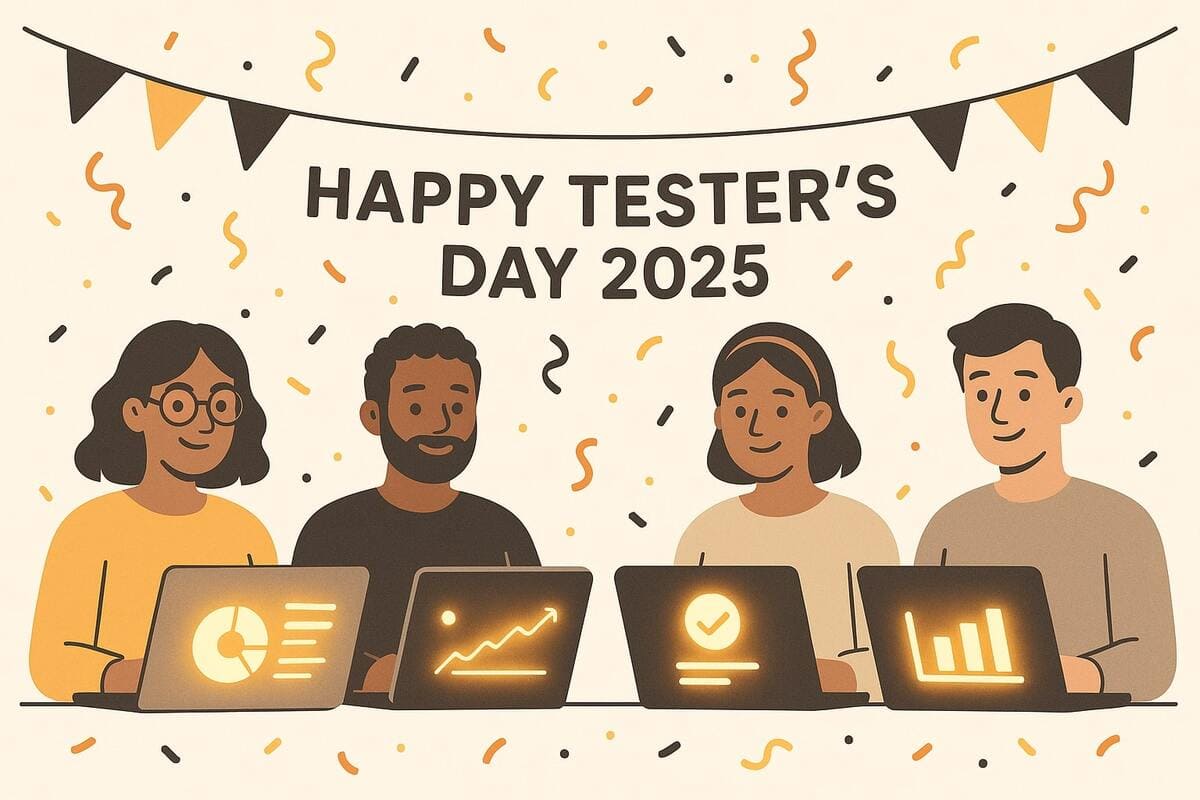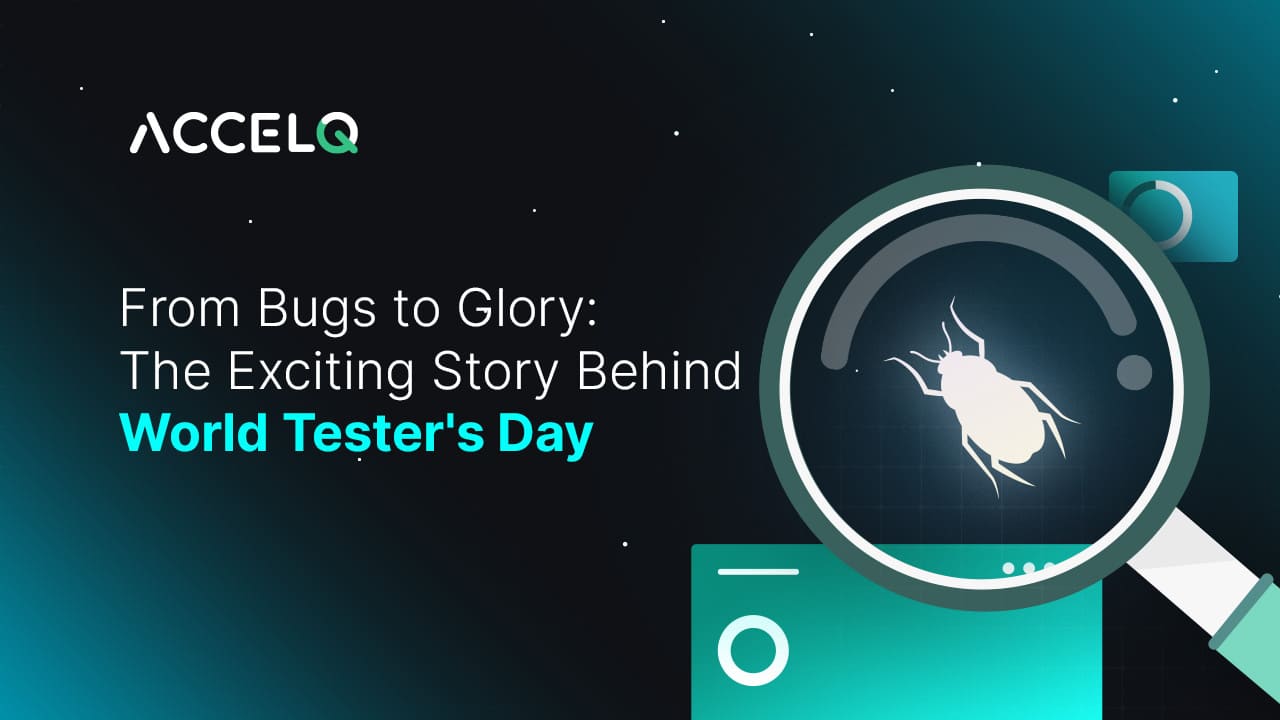From Bugs to Glory: The Exciting Story Behind World Testers Day

Bugs are the main enemies in software testing. Testers are the warriors who work hard to keep chaos away. From sluggish apps to security loopholes, bugs can sabotage user experiences and cost your organization millions.
That’s why terms like “bug” and “debugging” are not tech jargon anymore; they are part of your everyday vocabulary. Here come testers, software guardians to ensure every click, login, and workflow is reliable. Given their undeniable role in developing trustworthy software, celebrating International Tester’s Day – September 9 is not just fair; it is a day to honor them. Before diving into the history of this special day, I wish all software guardians a happy testers day.
History of International Tester’s Day
Tester’s Day is not a day that is randomly celebrated on September 9th. It is an important day for testers. On this day in 1947, Grace Hopper found the first bug in a computer.
It is not that the term ‘bug’ had never been used before. Back in 1878, Thomas Edison described technical flaws in his designs as “bugs”. As such, the usage continued in modern software.
The term “bug” for a software flaw became popular in 1947. It happened when a moth was found in a computer relay by Grace Hopper’s team. They documented this event. Thus, “bug” and “debugging” were coined in software testing.

How Did It All Start?
The story behind International Tester’s Day – September 9 started when Grace Hopper, a computer scientist, was working on the Mark II Calculator. Hopper and her team discovered that the Calculator was producing consistent errors.
As a result, when they opened it up and looked into its hardware, they found an actual bug. A moth got stuck between the two solenoid contacts of the relay. This caused problems for the computer electronics.
Hopper and her team noted the incident. They added the moth to their work log as proof of a ‘bug.’ They called the action of removing the bug ‘debugging.’
From Turing to Hetzel – The Software Testing Evolution
Tests back then focused more on the hardware, as its reliability was crucial to the proper functioning of the software. Then the focus on testing continued as computer science progressed.
- 1949 – Alan Turing’s Turing Test: He introduced the idea that software or a machine’s logic must behave indistinguishably from humans. His idea highlighted how software must adapt to project requirements.
- 1957 – Charles L. Baker: Stressed the importance of test development for complex and expensive applications. He advocated designing tests to ensure pre-defined requirements are met and improving software functionality via debugging.
- 1979 – Glenford J. Myers: He said testing software is “running a program with the intention of finding errors.” Meyer shifted the goal from proving correctness to actively trying to break the program. His goal was to achieve greater software quality.
- 1983 – Integrated Testing in SDLC: Testers began integrating analysis, revision, and testing activities throughout the software lifecycle to improve both testing and development outcomes.
- 1988 – William Hetzel’s Refinement: He published the article “The Growth of Software Testing. In that article, Hetzel redefined the concept, purpose, and methodology of software testing.
🤝Join the ACCELQ Community.
Connect with fellow testers, share knowledge, and grow together – Join Now!
Celebrating the Transformative Power of Testing
There has been tremendous progress made over the past 70 years in the world of testing. It is important to visualize how the world of software testing has evolved. Testing has now transformed from just being a corrective activity that takes certain measures to make the software work. It has become a continuous presence across the entire software development lifecycle.
Today, testing has shifted left and is more integrated into the development process than ever before. In fact, testing today has become more complex in the phase of constant technological and product evolution.
The role of the tester is growing as threats increase. Bugs and vulnerabilities are also becoming more complex. So, the focus on seamless, intuitive experiences increases.
Therefore, testing can no longer be an afterthought. It is no longer an activity but one that directly impacts product acceptance, advocacy, and organizational outcomes. But as products become complicated and business-critical, testing must evolve too.
Hence, testers today can utilize no-code tools and AI to expedite testing. These technologies help improve testing coverage and results.
Future For Testers
AI-powered, codeless test automation platforms, such as ACCELQ, cater to the exact needs of testers today. In effect, a platform like ACCELQ helps testers to remove redundant and laborious work like test creation and maintenance. It offers deep and clear insights into continuous testing activities and outcomes.
Conclusion
Testers Day is to celebrate the journey that software testing has undergone. Software Tester Appreciation Day aims to raise awareness about the importance of software testing. It also honors the vital role testers have in creating software that is widely used today. To that end, “From finding bugs to building trust, testers make it all possible – wishing all a happy testers day!”
You Might Also Like:
 Top Software Testing Conferences you must attend in 2024
Top Software Testing Conferences you must attend in 2024
Top Software Testing Conferences you must attend in 2024
 Top Testing Strategies and Approaches to Look for in 2023 and Beyond
Top Testing Strategies and Approaches to Look for in 2023 and Beyond
Top Testing Strategies and Approaches to Look for in 2023 and Beyond
 How Does Impact Analysis Help QA Teams Prevent Critical Bugs?
How Does Impact Analysis Help QA Teams Prevent Critical Bugs?
































